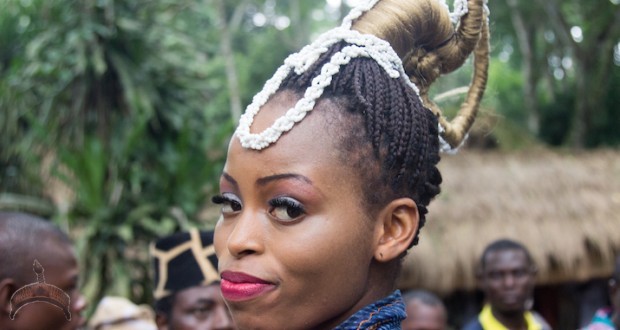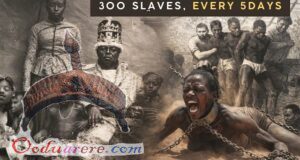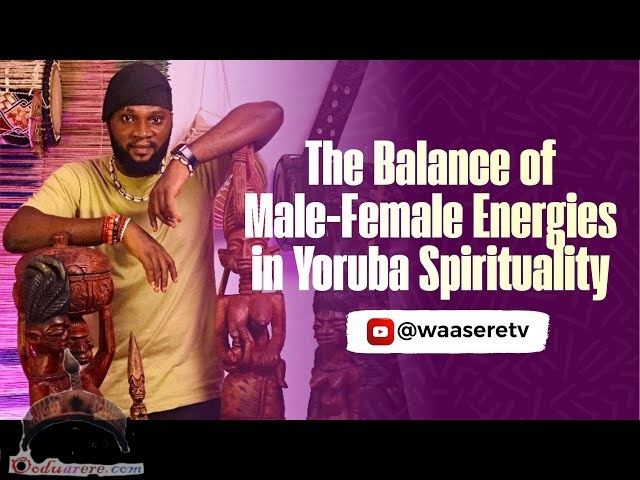There is no VAGUE word in Yoruba language— Study the language and endeavor to know more about yourself and how great your lineage is
Adeyinka Grandson explains:
DID YOU KNOW THAT:
OSOGBO was coined out of ‘Oso Igbo’, meaning wizard of the forest. This was as a consequence of earlier settlers who surprisingly met a man at the River Osun and whom they referred to as ‘Oso Igbo’, which led to the name Osogbo.
IGBOMINA came from ‘Ologbo lo mọ ọna’ meaning, it is the standard-bearer who knows the route. During the olden days’ war, the Ajagunla (Ọrangun of Ila), was the standard-bearer, who takes the flag, known as ‘Ogbo’. This Ogbo helped in directing other warriors to the right roads. ‘Ologbo lo mọ ọna’ later became ‘Igbomina.’
IBADAN originated from ‘Ẹba-Ọdan’, which means between the forests and the plains. Before 1829, Lagelu, the Jagun (commander-in-chief), of Ifẹ and Yoruba’s generalissimo, left Ile-Ifẹ with some entourage from Ifẹ, Ọyọ and Ijebu to found a new city at Ẹba-Ọdan.
IGBOHO is from ‘Igbo ti nho’, meaning ‘whispering forest’. When Fulanis in conjunction with Afonja’s military, destroyed the old Ọyọ Empire, Ọyọ people dispersed into the forest and to avoid being noticed, they communicated by whispering to one another. The people settled close to the area noticed that the forest was making unidentified noise and tagged the place as ‘Ibi ti igbo ti nho’ which became Igboho today.
OGBOMOSHO was generated from ‘Ogbori Elemọshọ’ when Sọun Ogunlọla, a great hunter, who subsequently became the first Sọun of Ogbomọshọ, helped the old Ọyọ Empire to kill Elemọshọ and brought his head to Alaafin. People started to refer to the settlement of Sọun Ogunlọla as ’Ibi ti wọn ti gbe Ori Elemọshọ’.
ỌYỌ was from ‘Ibi ti Ẹsin ti yọ’, where the horse slipped. When Oranmiyan left Ile-Ifẹ to found his Kingdom elsewhere, the Oracle told him to stop and build his kingdom wherever his horse slips (yọ). Ibi ti esin ti ‘yọ’ is now known as Ọyọ.
EKITI was derived from ‘Ilẹ Olokiti’, meaning mountainous land. When the descendants of Agbonniregun Baba Ifa and some other people left Ile-Ife to found a new kingdom, they resolved to settle where they saw lots of mountains and they said this is ‘Ilẹ Olokiti’ which later transformed to Ekiti.
IKEJA was named after an Awori hunter known as Akeja Onigorun. He was a successful hunter who was celebrated within the Awori clan of the Yoruba people, hence the present name Ikeja the state government seat of Lagos.
BADAGRY came into being around 1425 A.D. The area known as Badagry was founded by a farmer who had his farm along the peninsular named Agbede. The farm was subsequently known as Agbede’s farm. Agbede’s farm was referred to as Agbedegreme, which was later, coined into Agbadarigi by the Yoruba alien and eventually pronounced as Badagry by the European slave merchants when the coast of Badagry was discovered and opened to the New world.
ILE IFẸ got its name when Oduduwa arrived the settlement. It was believed that Oduduwa came with a giant cock and parcel of sand. The cock then spreads the sand and the land further expands, meaning Ilẹ fẹẹ (land expands).
In Yorubaland, gbọgbọ nkan lo ni bo ṣe jẹ. –A meaningful and a relevant culture
 Ọmọ Oòduà Naija Gist | News From Nigeria | Entertainment gist Nigeria|Networking|News.. Visit for Nigeria breaking news , Nigerian Movies , Naija music , Jobs In Nigeria , Naija News , Nollywood, Gist and more
Ọmọ Oòduà Naija Gist | News From Nigeria | Entertainment gist Nigeria|Networking|News.. Visit for Nigeria breaking news , Nigerian Movies , Naija music , Jobs In Nigeria , Naija News , Nollywood, Gist and more









